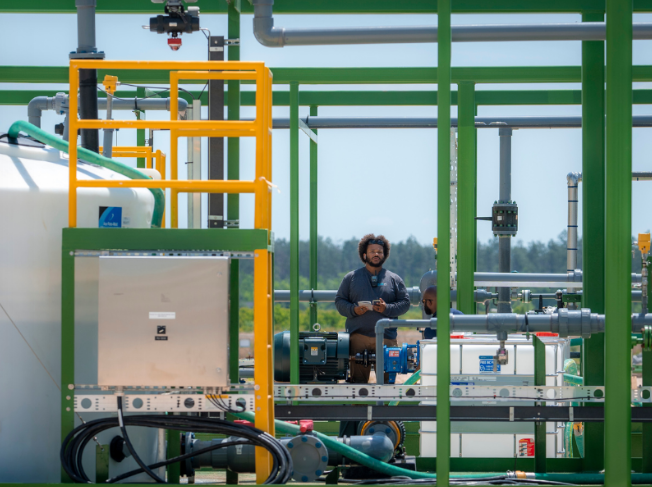The firm is developing a technology to avoid evaporation ponds and re-inject brines into salt flats. Through a joint venture it is starting to explore a salt flat in Argentina.
A development plan to become a lithium producer is being developed by the American company Ensorcia Group (Sorcia Minerals), a private corporation based in Huston, Texas, but which has been present in Chile for six years and, from 2021, in Argentina.
In both South American countries, the company seeks to establish itself as a lithium producer – alone or through joint ventures – based on direct lithium extraction technology, which avoids the installation of brine evaporation pools, the method traditionally used in this type of deposit.
Rodrigo Dupouy, CEO of Ensorcia Group in Chile and president of the company in Latin America, who will be speaking at the 3rd International Lithium Latin America Congress on 26-27 July, explains that the technology they are developing through the firm International Battery Metals (IBAT) allows for more efficient levels of mineral extraction, returning around 90% of the brine that is extracted.
Dupouy says that in Argentina they are already taking concrete steps in its development, through a joint venture called Triangle Lithium, with which they are initiating an exploration campaign in the Salar de Antofalla, Catamarca.
Of the 3,500 metres planned to be drilled by the end of the year, they have already drilled around 300 metres, the executive explained. In that country, they have around 20,000 hectares, although they are in talks to increase their holdings significantly.
“We are lithium exploiters, we are vertically integrated, to produce a lithium solution at 30%-40% concentration, depending on the conditions of the salt flats, which will then be transported to a chemical plant outside the salt flats, to affect the flora and fauna as little as possible,” says Dupouy.
In Chile, the firm has a presence in two locations, where it is developing surface studies and will soon carry out a geophysical study, before deciding whether to carry out drilling.
Modular and scalable plant
The role of International Battery Metals (IBAT), a Toronto-listed firm where Ensorcia Group became a major shareholder in 2021, is relevant to this whole plan.f
IBAT’s technology is led by John Burba, a chemical engineer with more than 40 years of industry experience, who has worked at global giants Dow Chemicals and FMC, among others, and who is credited with developing a selective lithium absorption plant at the Hombre Muerto salt flats in Argentina in the mid-1990s.
Dupouy says the company is developing the first industrial modular plant with the new technology (see main photo), which has been operating in Louisiana, US, with brines of lower quality than can be detected in Chile or Argentina. Once it is ready, probably around September, the plan is to move it to operate in South America.
The lawyer, who has been in charge of the North American firm in the region for two years, says that these plants have the advantage of being easily scalable, given that they are modular. In addition, this allows for less intervention in the places where the brine is extracted.
This is an industrial plant that extracts 20 litres per second of brine and, for example, placed in Chile’s Salar de Atacama, which has some of the highest levels of ore, could produce the equivalent of 5,500 tonnes of lithium carbonate.
“We are very ambitious in our plans. We want to go from extraction to production of lithium hydroxide and lithium carbonate, in Chile and Argentina. We are talking to several actors to participate with them or with the state in this,” he says, adding that the development of this type of technology, in the context of a global lithium market that is on the rise, “is an opportunity for Chile to regain leadership in production”.

